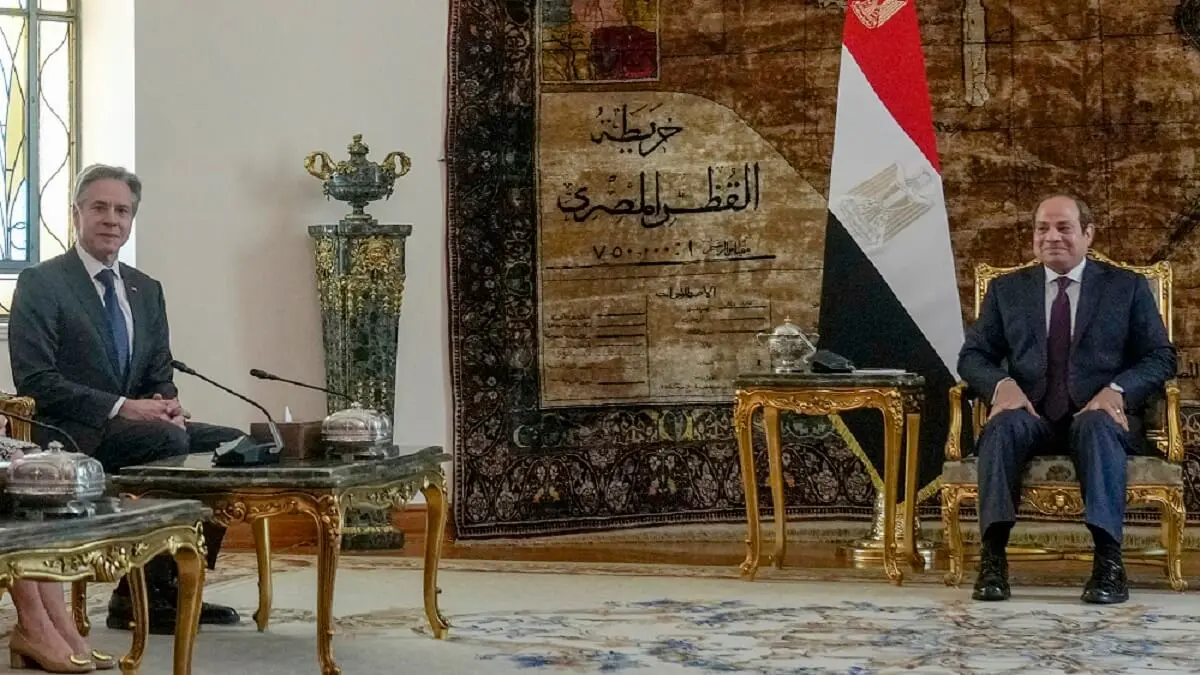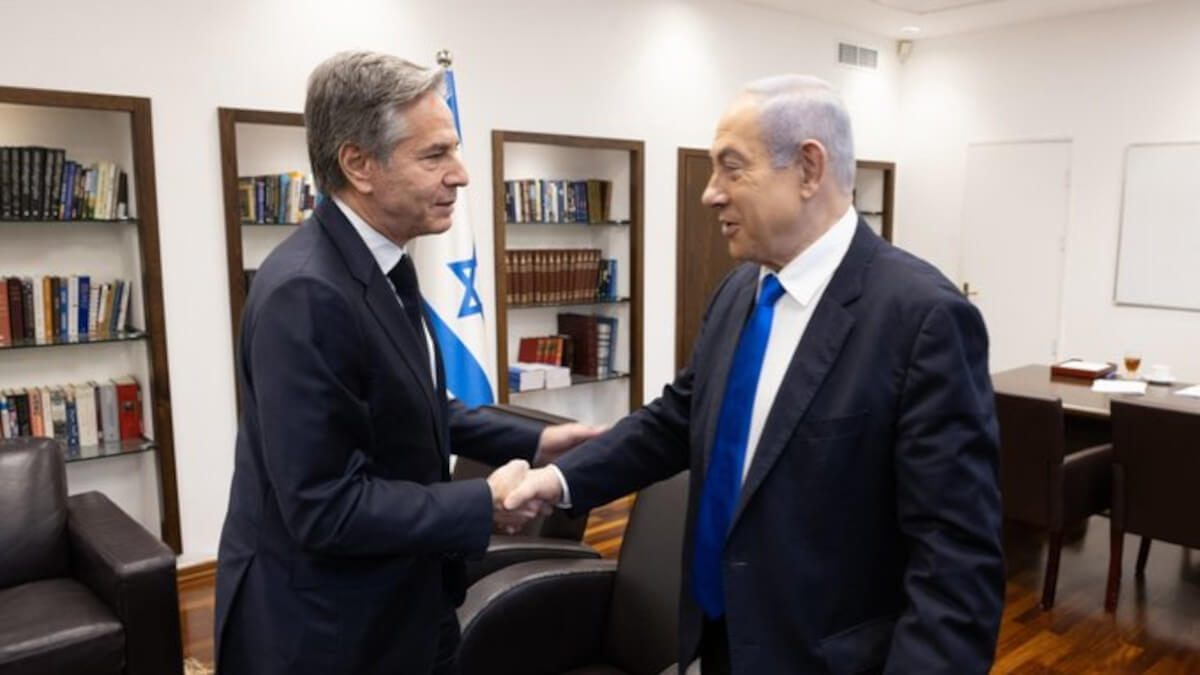Egypt leads new attempt for peace in Gaza

Iran's response to the Israeli bombing of the Iranian consulate in Damascus set off alarm bells. The Middle East was looking into the eyes of the possibility of a regional war between two neighbouring powers, but after the Israeli attack - which did not cause damage in Iran - that folder seems to be closed (and that ‘seems’ was never so certain, because the threats from both countries do not stop happening). And all this while the situation in Gaza remains deadlocked, something Egypt wants to put an end to.
An Egyptian delegation in Israel
Egypt has launched a new effort to end the suffering of the Gazan population. Peace, though still far from being a reality, is the goal, and to achieve it, Cairo has sent a high-level delegation to Israel. The first step must be the release of the hostages kidnapped by Hamas, but not before reaching an agreement on a new truce that will last as long as possible.

This visit by the Egyptians followed a visit by Israelis on Thursday. A delegation led by the head of the Israeli army, Lieutenant General Herzi Halevi, and the head of the Shin Bet national intelligence service, Ronen Bar, travelled to Egypt to bring the two sides closer together and establish initial contacts. Tel Aviv has welcomed the exchange of visits as ‘an attempt by Egypt to restart talks’. Indeed, an Israeli official said that ‘the Egyptians are really taking the lead on this. Egypt wants to see progress, especially because they are worried about a possible operation in Rafah.
Picking up Qatar's baton
Israel saw Doha as one of the possible mediators that could bring a realistic solution to the conflict, but recent events have shown that, at least for the time being, this will not be the case. Tel Aviv is already saying that ‘Qatar is still involved, but in a lesser capacity’. On the other hand, Hamas continues to talk of Qatar as a key player in achieving peace, despite having asked for a seat at the negotiating table.

The US, aligned with Israeli thinking, is increasingly convinced that an - extremely complex - solution to the conflict is more likely with Egypt than with Qatar. And they are optimistic about Cairo's new efforts. White House national security adviser Jake Sullivan believes that ‘there is a renewed effort to try to find a way forward’, adding that ‘there is hope in these hostage release talks’.
Intentions, but no proposals
However, words must be translated into action. It is not the first time that there is reason to believe in a solution, but nor would it be the first time that it has been frustrated and ended in disappointment. That is why observers stress that there are currently no hostage talks between Israel and Hamas. They go further. Nor is there any firm proposal from the Hebrew country, although they would be willing to consider a truce in exchange for the release of hostages.

Egypt's proposal, which puts a truce on the table in exchange for the release of 33 Israeli hostages, including women, the elderly and the sick, is along these lines. It should be remembered that the total number of people still held hostage by Hamas is 133, which is why, according to Tel Aviv, the truce would in no case exceed the six weeks proposed by Egypt.
And while Hamas is ‘open to any idea or proposal that takes into account the needs and rights of our people’, it seems unwilling to accept these conditions. They are simply calling for a permanent ceasefire and the withdrawal of Israeli forces from Gaza, which, of course, is not part of any possible scenario for Israel.








